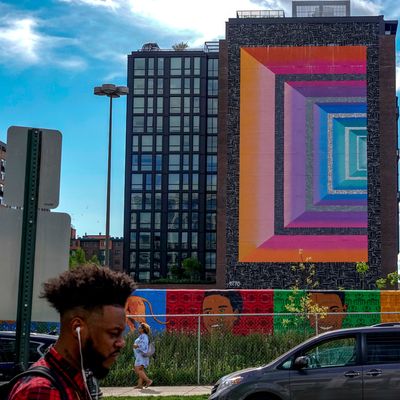
The Constitution requires that the capital of the United States be located in a federal district outside the control of any one state government. It does not require that the boundaries of that district remain fixed. The District of Columbia ceded the portion of its land lying west of the Potomac River in 1846. Democrats propose to cede most of the rest of the land to a new state, shrinking the federal district to the small area occupied by federal buildings downtown.
Both parties have partisan reasons for their positions on D.C. statehood. The difference is that Democrats also have a principled reason, while the “principles” trotted out to justify Republican opposition are farcical.
The principled arguments for statehood are twofold. First, the district’s 700,000 American citizens lack representation in Congress, a violation of democratic rights. Second, the Senate as a whole massively overrepresents white and rural areas, an imbalance that would be reduced slightly, though not eliminated, by adding a majority-minority state.
When Republicans attempt to make principled arguments against statehood, they usually grasp for some distinction between the district’s demographic character and that of the 50 current states. Last year, Senator Tom Cotton argued that Wyoming is deserving of statehood but D.C. is not, because the former “has three times as many workers in mining, logging, and construction and ten times as many workers in manufacturing.” Did the Founders believe resource extraction is a key qualification for representation? Would any modern theorist of democracy argue that people with jobs in mining or logging deserve political rights that should be denied to shopkeepers or cab drivers? The question answers itself.
At today’s hearing on D.C. statehood, Representative Jody Hice argued that D.C. does not deserve statehood because it “would be the only state in America without a car dealership, without a landfill.” D.C. does in fact have car dealerships. Why would the absence of dedicated retail outlets for selling automobiles preclude representation in Congress? Why would the lack of buried trash do so? There is no reason; it’s just a hunt for distinctions that can be turned into a meaningful basis for discrimination.
Heritage Foundation scholar Zack Smith sagely argued that D.C. residents already enjoy ample representation because members of Congress have to look at yard signs posted by its residents as they drive to work:
This is not an opinion offered on the fly by a random attendee at a Trump rally speaking to a reporter. This man is a fellow at one of the leading think tanks on the right! He was selected to testify by Republicans. He wrote his testimony in advance.
Nobody would ever suggest that posting yard signs near the legislature is an adequate substitute for democratic representation, if they cared at all about the rights of the people involved. And this is why Republicans usually tire of inventing pseudo-principled reasons and immediately reduce the question to simple partisanship: By insisting Democrats only care about partisan gain, they absolve themselves of any need to respect any democratic principle.






























